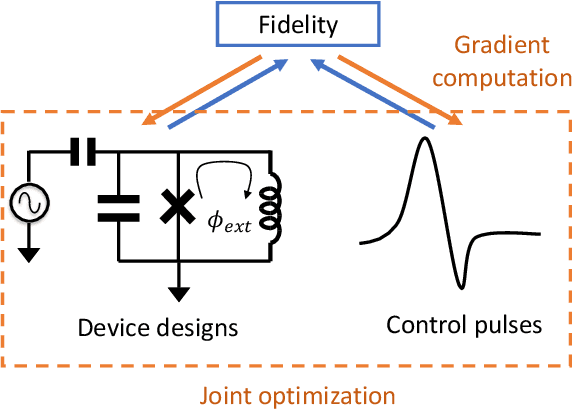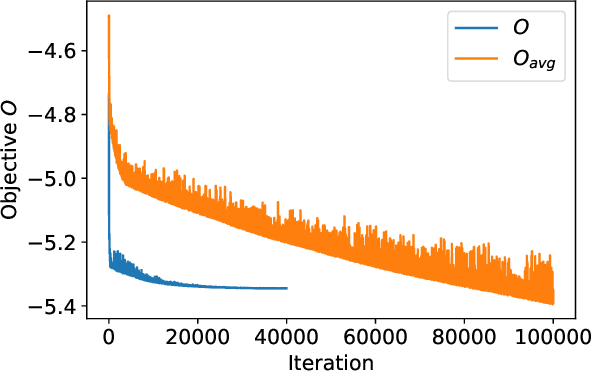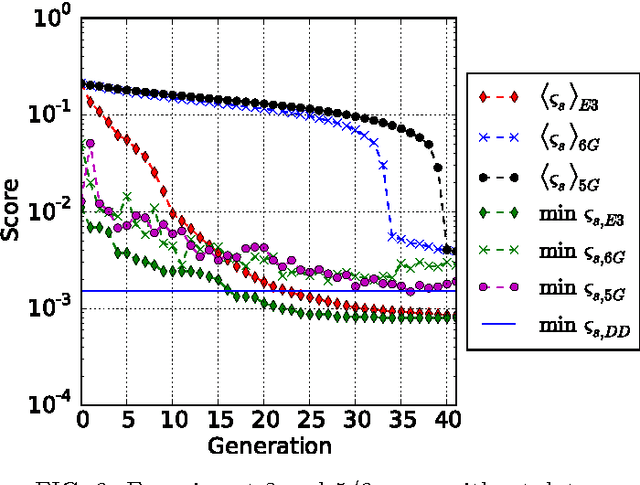Xiaotong Ni
Integrating Quantum Processor Device and Control Optimization in a Gradient-based Framework
Dec 23, 2021



Abstract:In a quantum processor, the device design and external controls together contribute to the quality of the target quantum operations. As we continuously seek better alternative qubit platforms, we explore the increasingly large device and control design space. Thus, optimization becomes more and more challenging. In this work, we demonstrate that the figure of merit reflecting a design goal can be made differentiable with respect to the device and control parameters. In addition, we can compute the gradient of the design objective efficiently in a similar manner to the back-propagation algorithm and then utilize the gradient to optimize the device and the control parameters jointly and efficiently. This extends the scope of the quantum optimal control to superconducting device design. We also demonstrate the viability of gradient-based joint optimization over the device and control parameters through a few examples.
Using Recurrent Neural Networks to Optimize Dynamical Decoupling for Quantum Memory
Sep 17, 2016



Abstract:We utilize machine learning models which are based on recurrent neural networks to optimize dynamical decoupling (DD) sequences. DD is a relatively simple technique for suppressing the errors in quantum memory for certain noise models. In numerical simulations, we show that with minimum use of prior knowledge and starting from random sequences, the models are able to improve over time and eventually output DD-sequences with performance better than that of the well known DD-families. Furthermore, our algorithm is easy to implement in experiments to find solutions tailored to the specific hardware, as it treats the figure of merit as a black box.
* 18 pages, comments are welcome
 Add to Chrome
Add to Chrome Add to Firefox
Add to Firefox Add to Edge
Add to Edge